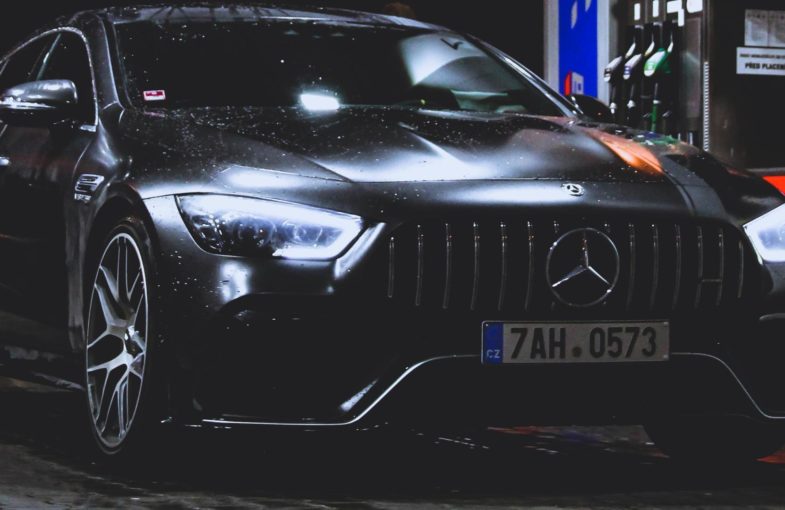To start at the beginning go here.
Things that are normally mundane take on an unfamiliar cast when you head into danger, some mix of heightened senses and paranoia turning the ordinary into the potentially menacing. Walking through the back halls of the casino I thought I noticed a higher number of non-employees, particularly shady men who kept their eyes on the money with women who kept having to pinch at their hemlines to keep them from riding up too high. I wondered if Sartre was greasing his relationship with the town’s elites with more sex than usual or if he had opened up a new line of business in blackmail. By the time I had opened the clanking metal door to the loading dock, I decided it didn’t much matter to me anyway. It did make me think of Sophie, though, and all her contradictions: Non-judgmental, protective, kind, capable of great savagery.
Outside the night was still cold and impenetrably black beyond the fluorescents that dotted the empty loading dock with islands of light. A few dozen yards away a car flashed its blue-white headlights. I jumped down off the dock and walked towards it, the evening mist making me wish I had brought the umbrella. Walking in the rain I noticed a Citroen BX parked a ways down the road, old and idle, looking like it had always been there.
In Sartre’s cavalcade there were three cars, sleek and black, with one of Sartre’s rooks close. Tall and black in skin as well as clothes, he opened the rear door of the sedan for me. The stout Frenchman was inside, dressed in a suit that might have been as expensive as the car. He was slightly disheveled, which suggested I might have interrupted something, which would also explain why he didn’t look happy to see me. No one did lately, so I didn’t let that slow me down. I slipped inside, sitting opposite Sartre so we could look at each other as we spoke.
Sartre waited for his rook to close the door then said, “You have the air of the half-dead.” For a moment I thought he was telling me that I smelled. The confusion on my face caused him to gesture to my bruises.
“Yeah,” I said, rubbing my chin. “I picked these up asking around about our friend.” Sergei’s bloated corpse chose that moment to float back up into my mind. I clenched my teeth and banished it.
Sergei smiled slightly, either my suffering or my news bringing him some small joy. “Then you have found something. What have you found?”
I glanced around the interior of the car, thinking about how easy it would be to bug. Then I thought about Atwell and the other layers of protection Sartre must have. Hell, he had gotten away with that stunt in the casino. So I stopped worrying about surveillance and said, “Sergei was with Mitnick’s crew, but he was from a different outfit. Somewhere in the south, Georgia or Chechnya.
“He was watching a girl being kept in Mitnick’s house, name of Nika. She’s important to someone, maybe Mitnick. Sergei let her fall into the wrong company and Mitnick had him killed to make an example.”
Sartre blinked so slowly it might not have happened, his hand holding up his head, index finger framing the side of his face. His tone was flat, without commitment. “Wrong company?”
I nodded. “The Idiots you saw me with at the Factory. One of them is named Lanzo Moreau. Apparently, he and Nika met while she was slumming at the Factory and hooked up.” I thought about Lanzo drunk and screaming for her, the honest pain in his voice. “It may have been more than that.” The lack of expression on Sartre’s face suggested he didn’t understand. “Young love,” I added, producing a cynical grin from Sartre. “Mitnick didn’t approve.” I gave the whole thing some extra thought and added, “I’m not sure why he just didn’t kill Lanzo.”
Sartre straightened his tie. “I knew the boy’s father. Perhaps Mitnick was aware of this.” That certainly explained the reaction of his uncle back at the moto shop. Hearing Sartre say this, though, it felt like something more important that I didn’t quite grasp.
“Or it may not have served the purpose that Mitnick wanted.” I threw out that guess without really knowing why. Maybe I found the idea that Mitnick was so intimately familiar with the town’s workings that he knew its genealogy to be more disturbing than I wanted to consider. I doubted Rotella and the police had reconnaissance that good.
Sartre stared steadily at me, the smile gone, his eyes only breaking with blinks so infrequent it felt like watching a sculpture. Under that evaluating stare, I was glad I hadn’t done anything to cross him yet. “And you are certain of this?”
“That Mitnick had Sergei killed?” I resisted the urge to shrug, keeping my frame straight. I took stock of everything I had learned then replied, “I’m as certain as I can be without a confession.”
“Does your lack of confession keep you from knowing why Mitnick tried to flush this man out into the ocean?”
I made the obvious guess. “To send a message, to let everyone know what happens when you fail him.” I had another theory, but I decided to keep that to myself for a little longer.
Sartre didn’t frown or smile, neither satisfied or unhappy. “Anything else that I should be aware?”
Still uncertain if it was a good idea, I decided to keep my word to Max. “Well, the Idiots want to kidnap her for ransom.”
That perked him up. Sartre’s eyes jumped to mine, as if he could snatch the truth from them. There was a quick intake of breath, like a predator catching a scent. “Pardon?” he asked as if he had simply failed to hear me.
“The Idiots, the other Corsican, Max, and the Turk and the Algerians, want to grab Nika and ransom her back to Mitnick.” I kept my tone level, trying not to let my contradictory thoughts on this poorly thought-out plan show.
Another slow blink from Sartre, “They told you this?”
I nodded.
“Why did they tell you?”
I rolled my eyes towards the ceiling, minutely suggesting the idea I was about to put forth was beyond my powers of comprehension. “They thought I might be able to help. They saw us talking at the Factory and asked me to pass it on to you.”
Sartre covered his mouth with his hand and chuckled through it. The clucking grew until he took it away to laugh in growing volume. His eyes widened as his laugh got louder, going from the dispassionate slits to engorged orbs, the grey in them shot through with veins like red lightening. I only had to stop staring at this when he laughed at the ceiling like I had told him the best bar joke. He then leaned forward, eyes bulging, laughing in my direction, as if urging me to join in. Or he could have been about to eat me. It was hard to tell.
To read the next chapter, go here.
To read the previous chapter, go here.
Related Posts
Open Throat Next Post:
Every Angel is a Terror


























